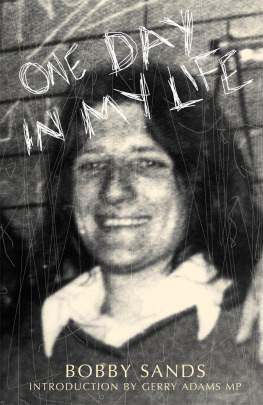Contents
Guide
For Allan, Marc and Leo, fathers and sons
and
In memory of Lisa Jardine
CONTENTS
Their bows will slaughter the young men;
they will have no mercy on the fruit of the womb;
they will not look with pity on the children.
Isaiah, 13:18
It is more important to understand the butcher than the victim.
Javier Cercas
The story in this book takes place across a period of time in which boundaries, the exercise of power and names of places often changed. For example, through the nineteenth century, the city today known as Lviv was generally known as Lemberg, located on the eastern outskirts of the Austro-Hungarian empire. Soon after the First World War, it became part of newly independent Poland and was called Lww until the outbreak of the Second World War, when it was occupied by the Soviets, who knew it as Lvov. In July 1941, the Germans unexpectedly conquered the city and made it the capital of Distrikt Galizien in the General Government, when it was known once more as Lemberg. After the Red Army vanquished the Nazis in the summer of 1944, it became part of Ukraine and was called Lviv, the name that is generally used today. Lemberg, Lviv, Lvov and Lww are the same place.
What to call the city, and other places the names of which changed across the years, in the pages of this book posed a number of difficulties. I have generally sought to use the name by which the place was referred to by those who controlled it at the time of which I am writing.
Wchter Family
Ottos family
Josef Wchter, b. 29.12.1863, Hawran, father
Martha (Pfob) Wchter, b. 23.9.1874, Vienna, mother
Hertha (Wchter) Chaterny, b. 1898, sister
Ilse (Wchter) von Bheim-Heldensinn, b. 1900, sister
Otto Gustav, b. 1901
m. Charlotte (Bleckmann) Wchter, b. 1908
Otto Richard, b. 1933
Otto, b. 1961, a nephew of Horst
Lieselotte (Liesl), b. 1934
Dario, b. 1969, a nephew of Horst
Waltraut, b. 1937
Horst Arthur, b. 1939
Heidegund (Heide), b. 1940
Sieglinde (Linde), b. 1944
Charlottes family
August von Scheindler, b. 1852, grandfather
Henriette (Schwippel) von Scheindler, b. 1856, grandmother
Carl Walther Bleckmann, b. 1868, father
Margarete (Meta) (von Scheindler) Bleckmann, b. 1878, mother
Hanne (Sterz) Bleckmann, b. 1902, sister
Helene (Kfferle) Bleckmann, b. 1903, sister
Heinrich Bleckmann, b. 1904, brother
Charlotte (Wchter) Bleckmann, b. 1908
Wolfgang Bleckmann, b. 1909, brother
Richard Bleckmann, b. 1914, brother
Horsts family
m. Jacqueline (Olln) Wchter, b. 1951
Magdalena Wchter, b. 1977, daughter
m. Gerlot Galib Stanfel, b. 1968
Ottos Comrades (193045)
Otto Bauer, deputy head of Ottos office, Lemberg, 19424
Hanns Blaschke, Deutsche Klub, July Putsch, Mayor of Vienna, 19435
Martin Bormann, private secretary to Adolf Hitler, 19435
Josef Bhler, Secretary General, General Government of German-occupied Poland, 193945
Josef Brckel, Gauleiter of Vienna, 193940
Eugen Dollmann, German diplomat, SS member, Ambassador to the Holy See, 1939
Georg von Ettingshausen, Viennese lawyer and party member
Helga Ettingshausen, his wife
Hans Fischbck, Reichsminister for the Netherlands, 19405
Trudl Fischbck, his wife, Charlottes friend
Ludwig Fischer, Governor of Warsaw, 19415
Hans Frank, Governor General of German-occupied Poland, 193945
Brigitte Frank, wife of Hans Frank
Niklas Frank, son of Hans Frank, b. 1939
Alfred Frauenfeld, July Putschist, Nazi Gauleiter in Vienna, 1930
Odilo Globonik (Globus), Gauleiter of Vienna, 1938, SS and Police Leader, 193943
Reinhard Heydrich, Director of Gestapo, 19349, Director Reich Main Security Office, 193942
Heinrich Himmler, Reichsfhrer SS and Chief of Police, 193345
Wilhelm Httl, SS Sturmbannfhrer and intelligence officer, colleague in Italy
Ernst Kaltenbrunner, Deutsche Klub, SS Leader Austria, Chief of Reich Main Security Office, 19435
Friedrich (Fritz) Katzmann, SS police chief, Lemberg
Albert Kesselring, Generalfeldmarschall, Luftwaffe
Erich Koch, Reichskommissar for Ukraine, 19414
Friedrich-Wilhelm Krger, Higher SS and Police Leader, General Government of German-occupied Poland, 193943
Karl Lasch, Governor of the District of Galicia, 19412
Ludwig Losacker, head of Ottos office, Lemberg
Kajetan Mhlmann, art historian and SS officer
Hermann Neubacher, Mayor of Vienna, 193840
Rudolf Pavlu, July Putschist, Ottos friend and colleague, Mayor of Krakw, 19413
Walter Rafelsberger, SS Leader and fellow State Commissioner, Vienna, 193840
Burkhardt (Buko) Rathmann, 24th Waffen Mountain Division of the SS Karstjger, 19435
Walter Rauff, SS officer, Reich Main Security Office, chief of secret police (Italy), 19435
Alfred Reinhardt, engineer, party member
Baldur von Schirach, head of the Hitler Youth, 193140, Reich Governor of Austria, 19405
Albert Schnez, Wehrmacht officer
Arthur Seyss-Inquart, Chancellor of Austria, 1938, Reichskommissar of the Netherlands, 19405, Horsts godfather
Karl Wolff, SS-Obergruppenfhrer, commander SS and police forces in Italy, 19435
Ottos Contacts
Stefan Brassloff, Professor, University of Vienna, Ottos teacher, 1925
Emmanuel (Manni) Braunegg, close friend of Otto, Vienna
Engelbert Dollfuss, Chancellor of Austria, 19324
Luise Ebner, friend of Otto, Bolzano
Reinhard Gehlen, SS intelligence officer
Friedensreich Hundertwasser, artist for whom Horst worked
Josef Hupka, Professor, University of Vienna, Ottos teacher, 1925
Herbert Kappler, SS police chief, Rome, 19404
Georg Lippert, architect, Vienna
Nora Oberauch von Hsslin, friend of Otto, Bolzano
Ferdinand Pawlikowski, Bishop, friend of the Bleckmann family
Erich Priebke, SS officer, Rome, escaped to Argentina via the Ratline
Dr Franz Rehrl, Governor of Salzburg, owner of a house in Thumersbach
Franz Hiernonymus Riedl, journalist, South Tyrol
Lothar Rbelt, photographer, Vienna
Franz Stangl, Commandant of Treblinka, escaped to Brazil along the Ratline
Hansjakob Stehle, historian and writer, acquaintance of Charlotte
Josef Thorack, sculptor, neighbour of the Wchters, Thumersbach
Melitta Wiedemann, journalist
Simon Wiesenthal, Nazi hunter
Karl-Gustav Wollenweber, German diplomat in Rome, 19404
The condition of the man in bed nine was grave. An intense fever and acute liver condition meant he was unable to eat, or focus on the matters of ambition and desire that propelled him throughout his life.
The notes at the end of the bed offered scant information, and much of it was inaccurate. On July 9th 1949 a patient by the name of Reinhardt was brought in. The date was right, the name was not. His real name was Wchter, but its use would alert the authorities that the patient was wanted for mass murder, a senior Nazi. He once served as a deputy to Hans Frank, Governor General of occupied Poland, hanged three years earlier in Nuremberg for the murder of four million human beings. Wchter too was indicted, for mass murder, the shooting and execution of over one hundred thousand people. The estimate was low.













